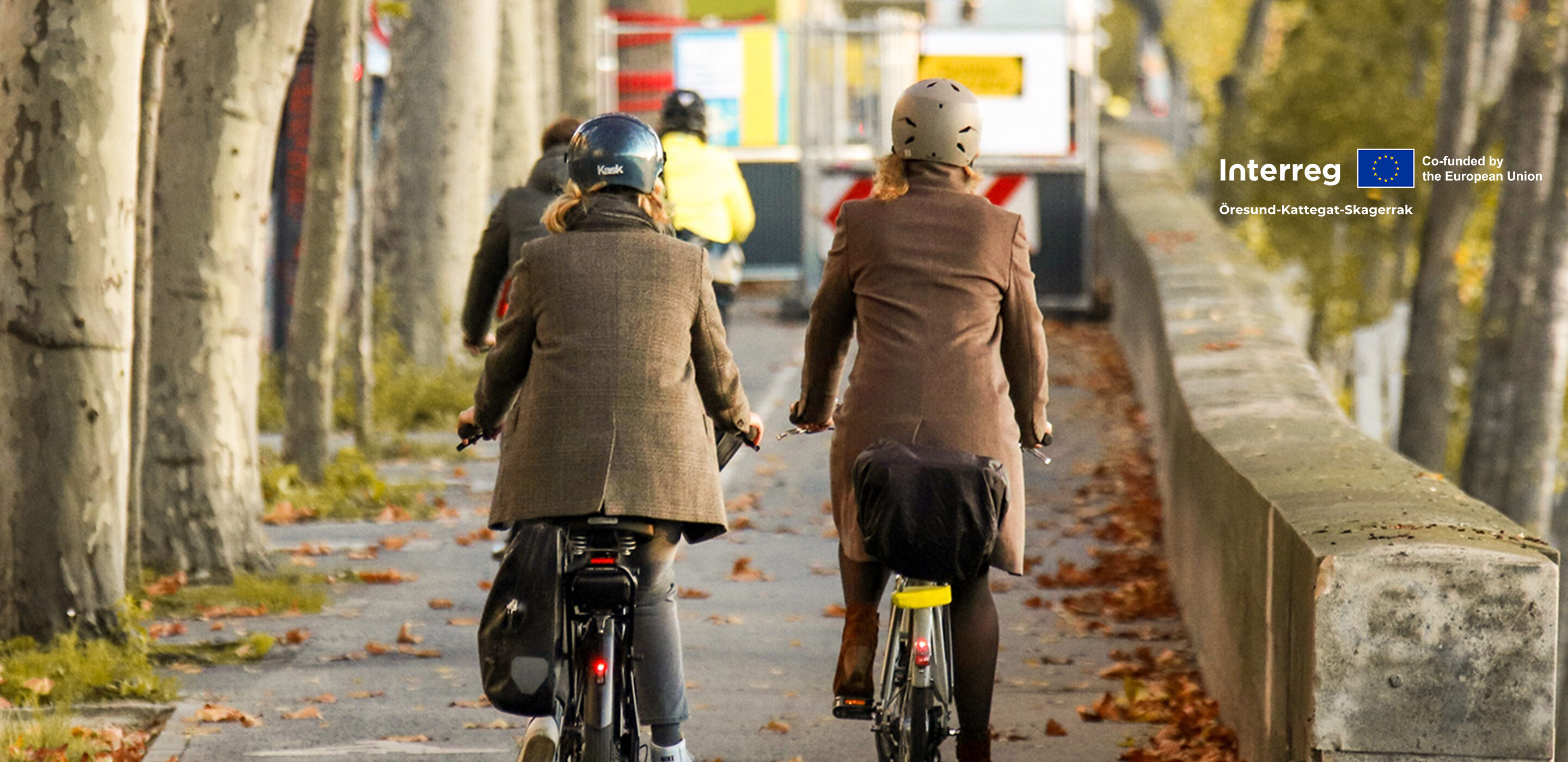In Green Mobility Shift, we are developing a collaboration model based on people’s needs and travel behaviour. The model will facilitate a social transition towards a more sustainable and democratic mobility in Öresund.
Despite the climate crisis, emissions from the transportation sector continue to rise. Therefore, we need to promote the development of more attractive and sustainable mobility where people demand and use active, shared, and collective transportation. Previous projects, such as Mobility Across Boarders and Intelligent Mobility of the Future, have shown that it is not enough to only introduce new technology and infrastructure. We must also work in a needs-oriented and structured manner with residents’ travel behaviour. In the work on changing travel behaviour and sustainable mobility, people and their needs need to be the focus.
A CROSS-BORDER MODEL FOR ÖRESUND
Together with Gate 21 and a large number of stake holders in the Öresund region, we are developing a Danish-Swedish model called SHIFT. The model aims to facilitate citizens’ transition to sustainable mobility through a focus on vision-oriented planning and citizen engagement efforts. The new model differs from traditional transport planning, which usually starts from existing transportation needs and provides infrastructure that matches it, so-called “predict-and-provide.” Instead, the SHIFT model’s objectives are based on a vision of the future. The model focuses on creating a collaborative model to facilitate societal transition towards more sustainable and democratic mobility.
The SHIFT model is based on the European framework Avoid-Shift-Improve (A-S-I), a strategic approach in sustainable mobility planning. It provides guidance on how we can proceed in the work on sustainable mobility to reduce carbon emissions, congestion, and encourage more people to choose sustainable transportation.
CONCRETE SOLUTIONS TESTED AGAINST REAL NEEDS
Over three years, the project partnership will collaborate to create methods for citizen engagement to influence residents’ transportation choices. This will be done by identifying the need for a more comprehensive planning process with public transport operators and regions, integrating the latest research on travel behaviour into practical methods, and then evaluating these methods in concrete solutions tested against real needs. The tests will focus on three different target groups: commuters to and from workplaces, travellers to schools and recreational activities, and travellers to and from transportation hubs.
CASE: SUPER CYCLE PATHS
Nearly half of all residents in Skåne have a bike ride of less than 30 minutes to their workplace. Despite this, Region Skåne’s publication Skåneanalysen shows that only 10% of them choose to cycle. Creating better conditions for more people to use the bike for commuting has great potential to reduce greenhouse gas emissions from the transport sector and improve public health.
Super cycle paths are an existing concept developed by Region Skåne in collaboration with the Swedish Transport Administration and several municipalities. The work primarily involves upgrading and adapting key cycle routes to facilitate commuting. In the Green Mobility Shift project, Region Skåne and Innovation Skåne collaborate on the super cycle paths, but with a different focus: behavioral change. Super cycle paths are one of eight cases where residents are involved in testing green transport modes in everyday life. Previous experience indicates that we’re more inclined to change how we travel when we help create location-specific solutions and try out new transportation methods in our daily routines.
In this case, we will focus on a number of existing super cycle paths in Skåne. At the same time, through a number of tests, we explore new, effective methods for changing people’s travel behavior at a system-changing level, adding value to Region Skåne’s existing work. We do this in close collaboration with residents, municipalities, associations, and workplaces located near the routes.
In 2024, a pilot study was conducted in close collaboration with Tetra Pak, Lund University, and the European Spallation Source (ESS). The results of the study have provided valuable insights and lessons that are being incorporated into the SHIFT model.
THE GLOBAL GOALS
The 2030 Agenda for Sustainable Development were adopted by all United Nations Member States in 2015 and includes 17 global sustainable development goals (SDGs). The concept of sustainable development integrates three dimensions of sustainability: social, economic and environmental.
In Green Mobility Shift, we contribute to achieving the following global goals:





